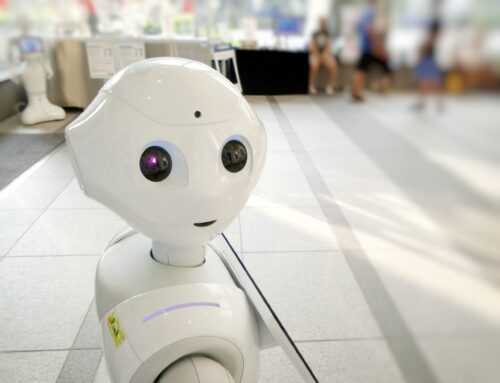In this post Lisa Scott, Learning Technologist, Alex Lumsden, Learning Designer, and Rosemarie McIlwhan, Associate Professor of Digital Pedagogies, share some of their reflections on attending the Association for Learning Technology Conference.
In September 2023, the Association for Learning Technology hosted it’s 30th annual conference. The conference theme “Looking through the digital lens: 30 years of Leading People, Digital and Culture” provided an opportunity to reflect the extensive changes in the sector over the past 30 years as well as to celebrate this milestone anniversary for the learning technology community.
Lisa Scott
“Although I’m a regular attendee of ALT Conferences, this is the first time I’ve been a presenter. The online format as an attendee was excellent, I could choose to watch sessions live and participate via Discord or Vevox or catch up at my leisure afterwards. Whilst I have been able to watch many sessions, there are as many that I have still not had time to watch, but I’m thankful for the ability to continue to have access beyond the conference.
The keynote session entitled “Leading people through times of complexity” by Anne-Marie Scott was fantastic. I particularly resonated with one of her closing remarks “universities are people”. Technologies may come and go, but it is the people who will drive and deliver real change. What resonated most was the kindness she displayed through her leadership and this was felt throughout her presentation.
The sessions I engaged with most were those which offered practical insights and solutions to challenges on the horizon. In particular the session entitled “Paper to Digital: The opportunities and challenges of an institution-wide rollout of a digital exams service”, which gave a thorough overview into the challenges of supporting a university wide digital exams service. The session “19 Platform 9¾ : Are we virtually there yet?” gave an overview of supporting dual mode teaching and made reference to my Heriot-Watt University colleagues at the Learning and Teaching Academy’s work in this area. These resources were shared under an open licence so seeing them be shared and used was heartening. There were a number of sessions on accessibility and inclusion (too many to mention), which have given me cause to pause and reflect on our own practices and ideas for improvement.
I enjoyed the sessions from other Heriot-Watt Colleagues, Roddy Munro, Alex Lumsden and Lucy Kendra who presented “Digital media collaboration across continents: Building relationships and maintaining standards over distance”, and Mari Cruz Garcia Vallejo who delivered a virtual session on “Inclusion and internationalisation in online programmes in HE: are we there yet”? Both these sessions truly reflect the global nature of our university and the importance of collaborating across boundaries.
I presented a pre-recorded session with my academic colleague Thomas Wong, on “Online grading for traditional in-person examinations” our experience of implementing Gradescope to digitise pen and paper exams. What I enjoyed most about this session was the conversational approach Tom and I took when pre-recording our session. Tom proposed the challenges faced by a multi-campus global university in ensuring consistency of marking across all of our locations, from the academic perspective and proposed the solution (as a school-based learning technologist). It was then my task to take the idea and ensure a workable process that could be implemented at scale. I had to work with many academic and professional services teams across the university to ensure this.
The main downside for me as an online presenter was the lack of interaction or feedback from the audience that would have occurred if this session was live. If I present in this format again, I may try to implement a way of receiving synchronous or asynchronous feedback.
The conference celebrated 30 years of ALT, and the scale of change over this time has been remarkable. 30 years ago I was a high school student, computing classes consisted of one Apple Macintosh [computer] shared between two students and the internet was something that we talked about but only in later years, were actually able to experience. As a university student in the early 2000s, we didn’t have a VLE, social media wasn’t a thing and mobile phones weren’t yet smart. What does the future hold for learning technologists in the next 30 years? Change in technologies is a certainty, but if we remember the keynote’s point that “People are the University” we can help shape and manage that change, by continuing to work across boundaries.
Alex Lumsden
“Attending an ALT conference is a fantastic opportunity to get a glimpse inside the work of other higher education providers. I found it reassuring to hear that others in similar roles face the same obstacles, and inspiring to learn about how they are tackling them. ALT seems to be an arena where those working in or with learning technology feel comfortable sharing their vulnerabilities, and I particularly appreciated the honesty of some of this year’s presenters, several of whom talked about the challenges of leading digital education teams through change. I also felt that this year’s programme reflected the increasing diversity of the field, with more sessions on course design approaches and media production. The conference is not just for learning technologists, and with this in mind I am already thinking about topics I might like to present on next year.”
You can access Alex’ presentation on YouTube, co-presented with Roddy Munro and Lucy Kendra.
Rosemarie McIlwhan
“It was really good to see HW colleagues both attending and sharing their practice at the ALT conference. Participating in the ALT community is an excellent way to build connections in the sector and also to develop our own knowledge of advances and innovations in learning technology. The reflective nature of this conference also provided an opportune moment to pause and reflect on how we’ve got to where we are today. That trip down memory lane, with shared tales of favoured (and loathed) technologies provided not just moments of levity and a sense of belonging and connection, but also real reflections on how we have and continue to develop our use of technologies to support and enhance learning. It was also useful to consider some of the challenges we face as a learning technology community and as educators.
With conference themes focused on diversity, inclusion and social justice, it was a real step forward that conference committee set-up an accessibility sub-group to focused on the conference becoming more accessible by design. Whilst there’s still more to do on this front, I’d hope that this sets a precedent for future conferences, providing reusable resources and guidance on accessibility for presenters and organisers alike. It was certainly a great opportunity for those of us in the committee to learn more about different accessibility practices around the globe, drawing on each others’ experiences to enhance our own practices.
When next year’s call for conference papers or committee members comes out, I’d encourage colleagues to think about getting more involved, you never know what connections you’ll make or what you might learn, and whatever happens you’re guaranteed a warm welcome in the ALT community.”




